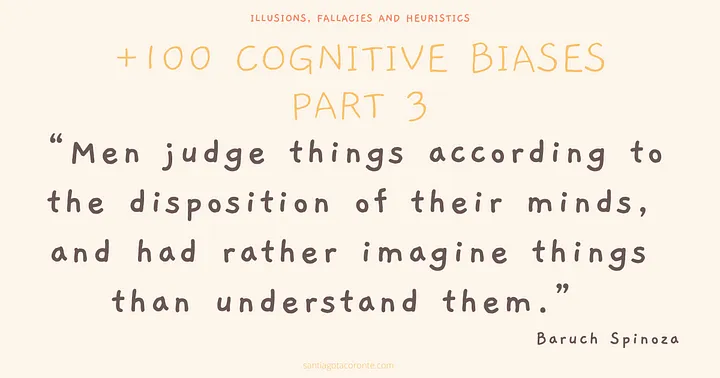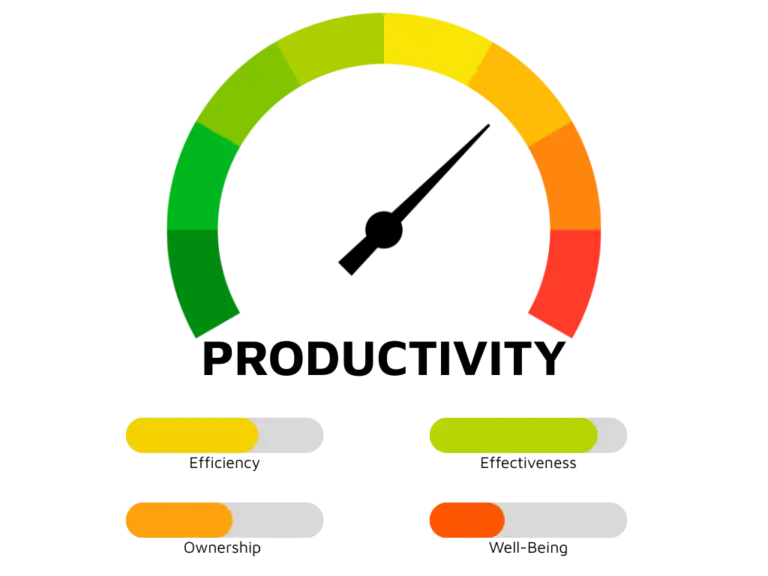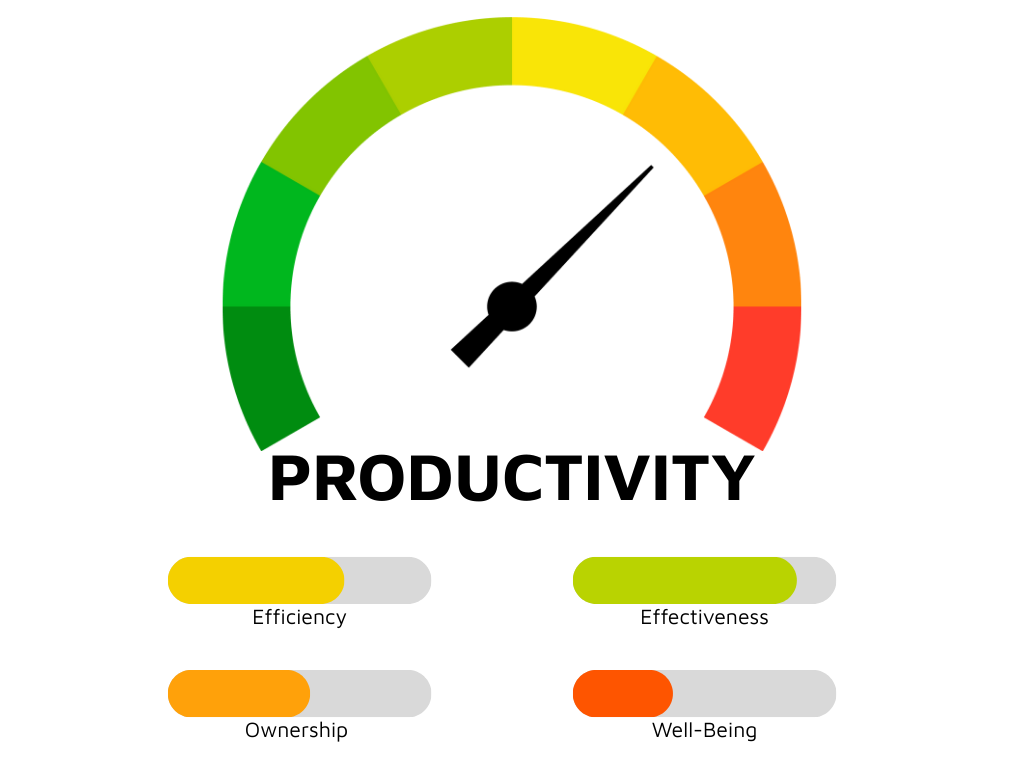Disclaimer: The list is extracted from the best seller from Rolf Dobelli’s “The Art of Thinking Clearly.”
The list is split into four parts for better readability.
PART 3 | 51 to 75
51. “Because” justification: When we are given a reason (any reason), we are ore likely to comply.
52. Decision fatigue: Willpower deteriorates over time, especially if we haven’t eaten or rested.
53. Contagion bias: We can’t ignore our feelings for particular objects, even if they are from long ago or have only a tangential relationship with us.
54. Problems with averages: The underlying distribution is frequently obscured by averages.
55. Motivation crowding: Small monetary incentives may kill other forms of motivation.
56. Twaddle tendency: plenty of words cover intellectual laziness, incompetence, misunderstanding, or undeveloped concepts.
57. Will Rogers phenomenon: Moving something from one category to another has the effect of changing the average in two types (positively). For instance, moving the lowest net worth individual from a higher to a lower group increases the average net worth of both groups.
58. Information bias: the erroneous belief that having more knowledge means making better decisions.
59. Effort justification: When you put a lot of work into something, you tend to overestimate the outcome.
60. Law of small numbers: When we think that traits of the entire population can be inferred from a tiny sample
61. Expectations: our reactions to various occurrences are shaped by our expectations, which contribute to our pleasure. Set high standards for yourself and others you care about, then lower them for things you can’t control.
62. Simple logic: we are more likely to rely on intuition because it is less demanding.
63. Forer effect (aka Barnum effect): We prefer to identify with positive features in broad descriptions and believe in pseudoscience.
64. Volunteer’s folly: Volunteering our time is less efficient than providing our money for the same length of time (since we undertake these jobs less well). Celebrities are an exception.
65. Affect heuristic: We make complex judgments based on our emotions rather than weighing the risks and advantages separately.
66. Introspection illusion: the idea that reflection leads to accuracy or truth.
67. Inability to close doors: We prefer to leave options open because we believe they are free, but they cost us by diverting us.
68. Romania: We place a higher value on new and unusual things than on their actual benefits.
69. Sleeper effect: If propaganda/advertising resonates with someone, its power will only grow with time.
70. Alternative blindness: We often ignore the importance of comparing an existing offer to the next-best alternative.
71. Social comparison bias: We tend to refuse help to people who might outsmart us, even if we finish up looking like a fool.
72. Primacy and recency effects: The initial trait, or the most recent knowledge, significantly influences us more.
73. Not-invented-here syndrome: when we believe that anything we create is unbeatable.
74. The Black Swan: an unimaginable occurrence that has a significant impact on your life, profession, organization, or country
75. Domain dependence: It isn’t easy to transfer knowledge from one field to another.
Links to the other sections of the Cognitive Biases list





